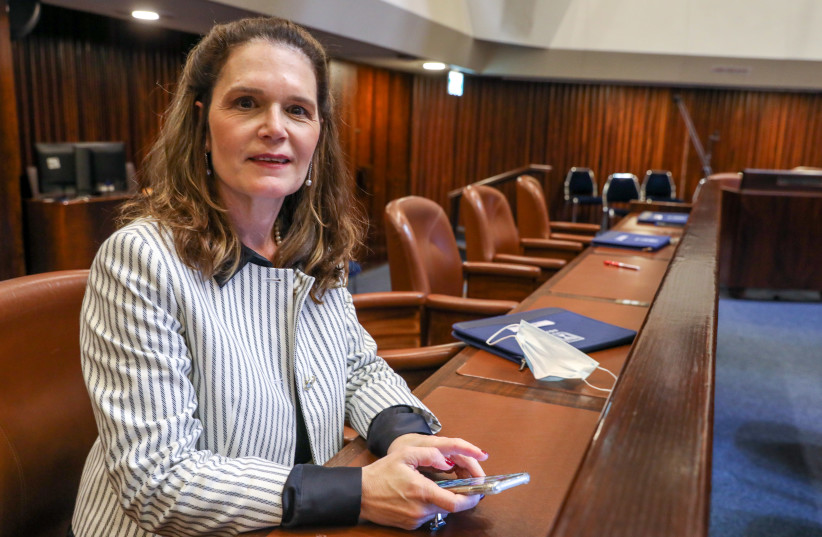MK Itamar Ben-Gvir will back MK Bezalel Smotrich as leader of the Religious Zionist Party if they decide to merge for the upcoming election, their party colleague MK Michal Waldiger told The Jerusalem Post Tuesday.
The far-right party officially split into two on Sunday after Ben-Gvir’s Otzma Yehudit faction broke away from Smotrich’s National Union faction.
Ben-Gvir’s move was described as purely technical to give him a seat on the Elections Committee. The committee is responsible for overseeing the election preparations and processes and deciding any disputes. Each party has a representative on the committee, and the Religious Zionist Party now effectively has two.
However, Ben-Gvir grew in popularity over the past year, and he may attempt to renegotiate the terms of a new merger with Smotrich. On the one hand, Ben-Gvir’s popularity could give the party a boost. On the other hand, his prominence could serve as fuel in the center-left parties’ campaigns and galvanize their voters to stop him from becoming a minister in the next government.
Religious Zionist Party primary
The Religious Zionist Party will be holding its first primary on August 23, and 20,000 people have registered so far, Waldiger said.
The party, including Ben-Gvir, is united behind Smotrich, she said. Waldiger invited Ben-Gvir and Yamina head Ayelet Shaked to join the party’s primary election for its Knesset list.
Yamina has been polling around the election threshold, and it may choose to merge with a party at a later point.
“Ayelet showed us over the past year which bloc she belongs to,” Waldiger said. “I wouldn’t throw my lot in with Yamina. We saw how they zigzagged; how they broke their word. We are looking for people who keep their word.” Nevertheless, as long as Shaked is committed to the party’s basic principles. she would be welcome to join, she said.
The Religious Zionist Party is aiming for a number of seats in double figures and for a right-wing coalition of some 64 MKs to ensure that it remains stable, Waldiger said.
No joining with Ra'am
The Religious Zionist Party served as exemplary parliamentarians over the past year, she said, citing a recent index published by the publicly owned media outlet Shakuf that rated both her and Ben-Gvir as being among the top 10 MKs in utilizing parliamentary tools.
Championing mental health
The issue that Waldiger championed in the Knesset was mental health. One of her close relatives became a drug addict and also suffered from schizophrenia. The welfare and health systems could not handle both at the same time, and this relative fell through the cracks, she said.
Along with two other families, Waldiger founded a nonprofit called Emunatcha, or “your belief.” It is also an acronym in Hebrew for “organization of families of patients with double illnesses,” aimed specifically at assisting people who suffer from both mental disorders and addictions.
Once Waldiger arrived in the Knesset, she realized that the Israeli system was not designed to coordinate between the medical and social care of mental-health patients and that it required systemic change.
The OECD average for the percentage of investment in mental health out of the general health budget is 8%-12%, while in Israel it is 4%-5%, Waldiger said.
She found allies in a variety of different parties, including Labor MK Efrat Rayten, who chaired the Knesset’s Labor, Welfare and Health Committee. The cooperation between the two led to the addition of a clause in the Disabilities Law, which passed last Wednesday. An existing law says people with over 40% mental-health disability are eligible to enter a community-based rehabilitation program run by the Health Ministry.
The new Disabilities Law offered people with special needs the same type of program, but one that is run by the Welfare Ministry. Waldiger insisted on a clause under which those who have two mental conditions at once – for example, someone with both autism and schizophrenia – are covered by the law to ensure they do not fall between the cracks.

